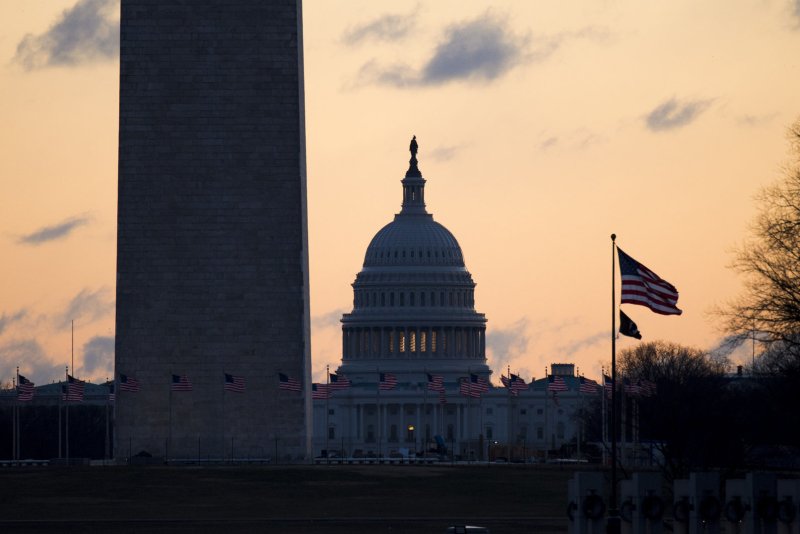The Senate Committee on Armed Services heard testimony from experts on the United States' nuclear policies. File Photo by Kevin Dietsch/UPI |
License Photo
Experts warned lawmakers Thursday that the United States lags behind Russia in nuclear capabilities, but highlighted opportunities created by President Donald Trump's withdrawal from longstanding treaties.
Amid dramatic changes in nuclear policy, the Senate Committee on Armed Services called a panel of former military and government officials to assess the need for nuclear modernization programs.
Chairman James Inhofe, R.-Okla., said adversaries have put the United States on the defensive because of the government's failure to modernize its nuclear programs.
"That is not the case with Russia and China, who have invested heavily and deployed modern nuclear systems as part of strategies intended to diminish our power and prestige," he said.
Madelyn Creedon, former principal deputy administrator of the National Nuclear Security Administration, attributed the lack of nuclear modernization to drawn-out wars in the Middle East.
Ranking member Jack Reed D.-R.I., questioned the Trump administration's actions to limit the risk of confrontation after withdrawing from two nuclear agreements and said he worried that the changes would lead to increased proliferation.
"While I understand that Russia was in non-compliance and that China also poses a threat, I am concerned that the U.S. did not redouble efforts to pressure Russia back into compliance or seek modifications to the treaty, if necessary," he said.
Since John Bolton became national security adviser and Mike Pompeo moved over to the State Department, the Trump administration has pulled the United States out of the 2015 nuclear agreement with Iran and threatened a full withdrawal from the Intermediate-Range Nuclear Forces Treaty with Russia.
"Are we entering a new destabilizing arms race?" Reed questioned.
Signed in 1987, the INF required the two countries to destroy all missiles -- and their launchers -- with a range of 500 kilometers to 5,500 kilometers within three years of signing the agreement.
The White House said that while the United States has upheld its end of the deal, Russia has continually defied the treaty, and vowed a complete withdrawal in six months.
Reed also expressed concern that a lack of oversight could empower Russia to ramp up its nuclear arsenal because "there's no formal document to constrain them."
Franklin Miller, former special assistant to former President George W. Bush, said that a formal document would not influence Russian behavior because "the treaty was dead."
"Russia is on record as a serial violator of arms control treaties," he said.
Creedon disagreed with the administration's handling of the INF, but agreed the deal was a bust.
"The Russians were obviously in violation of the INF treaty, Creedon told lawmakers. "That said, the decision to pull out of the treaty was a mistake."
Miller said it is time for a new treaty that covers all of Russia's nuclear weapons.
Russian Vladimir Putin "has all of these exotic systems on the side that aren't covered," Miller said, "and he's got several thousand non-strategic nuclear weapons, including the treaty buster. I think we ought to finally get our hands around all of these."
The hearing took place hours after talks between Trump and North Korean leader Kim Jong Un collapsed. Despite its sudden end, the summit was mentioned once during Thursday morning's panel. Sen. Tim Kaine, D-Va., praised the president for not accepting a bad deal.
"I was relieved that we walked away," Kaine said. "It was pretty clear we weren't going to get the first thing that we need to get to determine whether North Korea is serious at all."















